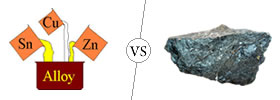Difference between Shares and Stocks
Key Difference: Shares and stocks both are the units of ownership in public companies. However, they differ in a technical aspect. A company creates stocks when it fixes its capital in terms of monetary amount and then sells different proportions to the investors whereas if a company creates many shares of equal nominal value and sells different number of these shares to investor, it is regarded as creating shares. But in financial termilogy there is another way in which stocks and shares are defined.

Stock is also used as plural term referring to categories of investment options and share can be described as a single unit out of many individual units into which company’s capital is divided. Generally in U.K. the security representing the ownership on part of company’s assets or earnings is defined as shares while the same interpretation is used as stock in U.S.
Stock or share market is recognized as the backbone of the trading system. Stock is the collection of fully paid shares whereas shares may be partly or fully paid-up. All shares possess nominal or par value. This value is not affected by the market prices of shares rather it is determined by dynamics of supply and demand. This value is generally the very first issue price of the shares. The shares cannot be issued at a price lower than this par value. This value gets recorded in the company’s balance sheet as share capital. Shares can also represent ownership of other classes of financial assets, such as mutual funds. In large corporations, buying shares does not always lead to a stock certificate. Not all shares of stock are created equally. They can be of Authorized, restricted, float, outstanding and unissued types having different attributes from each other.
There are two various types of stocks. Generally most of the stock held by individual’s falls in the category of Common stock. Common stock represents the majority of stock possessed by the public with voting rights and also with the right to share in dividends. . Shares usually do not have voting rights. On the other hand Preferred stock has fewer rights than common stock, with the exception of case of dividends. Dual class stock consists of shares issued for a single company with varying classes and different voting and dividend payment rights. Treasury stock consists of shares that have been acquired back from the public.
Shares must have distinct numbers whereas stocks are not numbered. One cannot transfer shares in any fractional amount although some minimum fractional amount of stock is eligible of being transferred provided the desired conditions. On a broader sense we can conclude that both shares and stocks are related to partial ownership of the company.
Image Courtesy: tradechronical.com









Add new comment